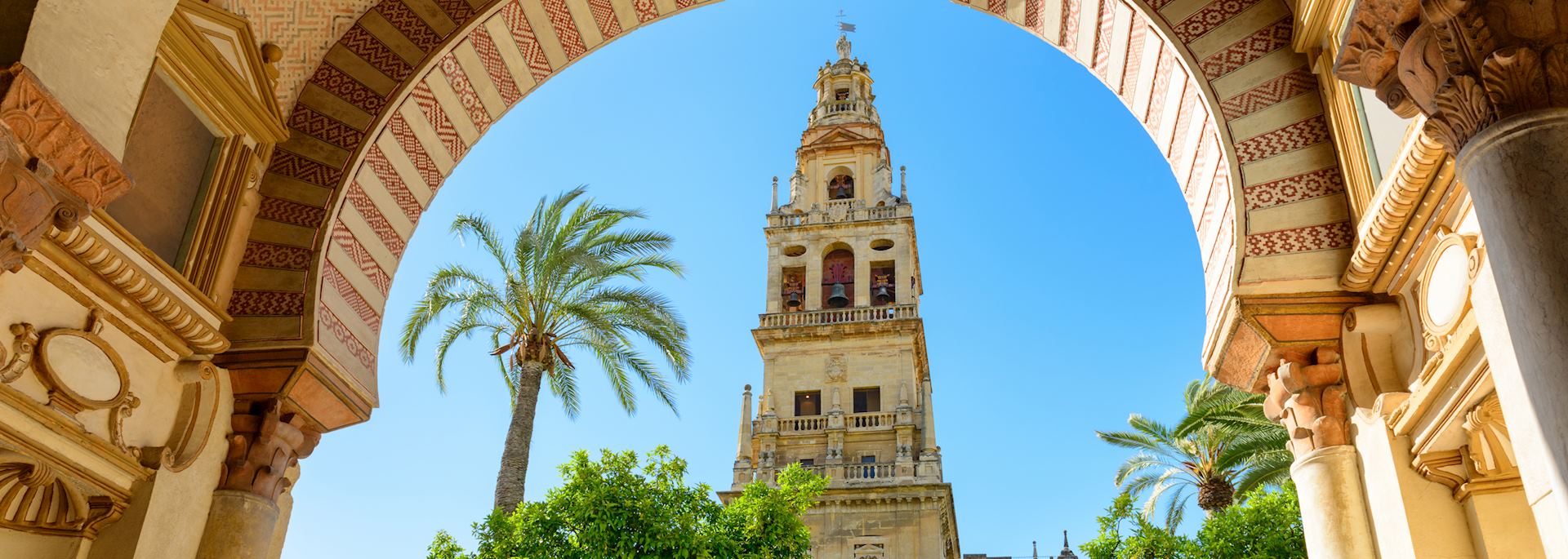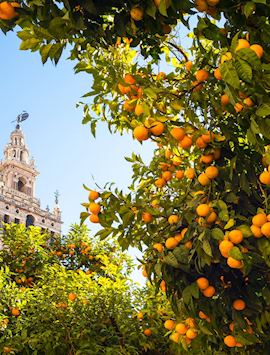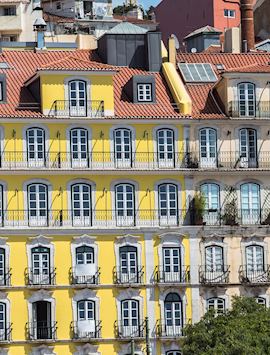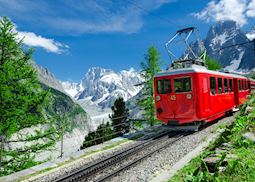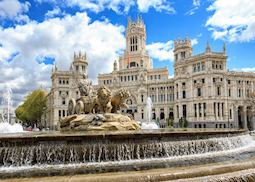Europe makes a good year-round destination. Overall, late March to early June, and September to November are the best times to visit, as you’ll avoid the busier summer period and see your money go further.
Northern Europe is generally warm and dry between May and September, while farther south, temperatures can reach 36°C (96°F) between July and August. Vibrant Easter celebrations across southern Europe make for a particularly interesting time to visit, while a September or October trip will coincide with the grape harvest. Winter in northern Europe is cool and wet, while the south is mild, making it a good time to explore the cities.
Month-by-month guide for travelling in Europe
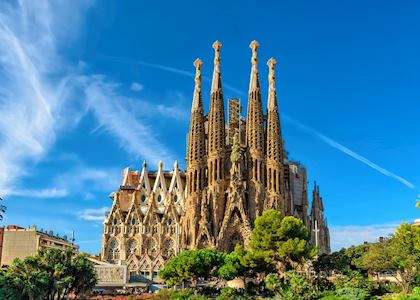
Visiting Europe in January
The mild Mediterranean winter is a good time to visit the cities of southern Europe. You’re rewarded with quieter streets and museums, better value for money and availability, and less waiting in line to enter popular attractions.
Although temperatures are cooler, and some regional attractions may have limited opening hours, the sense of seeing a city at a more relaxed time more than compensates. In Iceland, daytime sightseeing needs to be planned carefully to coincide with the limited hours of sunlight.
Events & Festivals
- In Iceland, chances of seeing the northern lights are best between November and February, when the sun sets before 6pm and the nights are longest.
- The Icelandic Þorrablót winter festival is celebrated from mid-January to mid-February. Þorrablót is an old pagan festival originally celebrated by Iceland’s early settlers over 1,000 years ago. Revived in the 1800s, it brings local people together to eat, drink, dance and sing traditional songs.
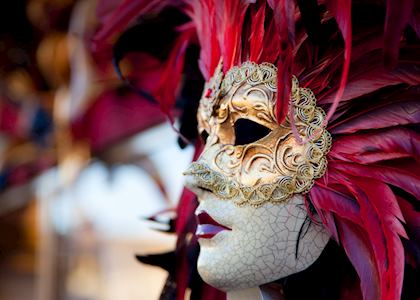
Visiting Europe in February
In February, much of southern Europe gears up for a pre-Lent party, with carnivals in many cities, including Venice. Temperatures are still cool, and some attractions may be closed or have reduced opening hours. But, many make exceptions for carnival time, when they open for special events during the large-scale local festivities.
Events & Festivals
- In Iceland, chances of seeing the northern lights are best between November and February, when the sun sets before 6pm and the nights are longest.
- The Icelandic Þorrablót winter festival is celebrated from mid-January to mid-February. Þorrablót is an old pagan festival originally celebrated by Iceland’s early settlers over 1,000 years ago. Revived in the 1800s, it brings local people together to eat, drink, dance and sing traditional songs.
- Expect elaborate masks and costumes, masquerade balls and full-on revelry at the Carnival of Venice, held in the two weeks before Lent.
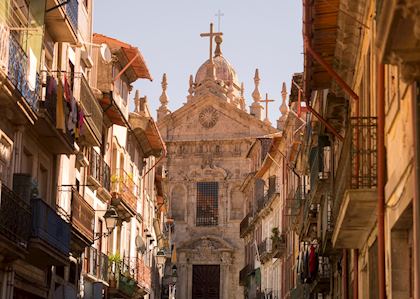
Visiting Europe in March
By March, temperatures are beginning to warm up in southern Europe, though there might still be some rain. Depending on when Easter falls, you can find elaborate celebrations for Holy Week (the week before Easter) taking place.
Events & Festivals
- Holy Week is a time for religious processions across Spain and, to a lesser extent, in Portugal and Italy.
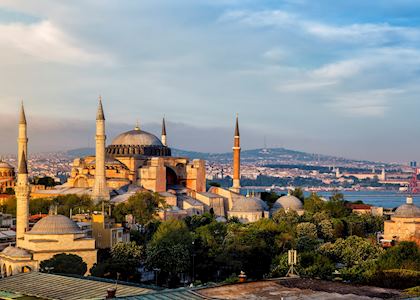
Visiting Europe in April
Spring blooms, warmer temperatures and generally blue skies arrive in southern Europe in April, at a time when most hotels re-open and attractions switch to summer opening hours.
Although northern Europe is a little further behind, the weather is drier and warmer than earlier in the year, as the days become noticeably longer. You might also catch Holy Week celebrations across southern Europe in the week before Easter. April is one of the quieter times to visit Iceland, so you’re better able to enjoy sights away from the crowds.
Events & Festivals
- If Holy Week falls in April, you’ll see religious processions in many Spanish cities, as well as in Portugal and Italy.
- The Istanbul Tulip Festival, running from April into May, pays homage to one of Turkey’s most cherished flowers.
- Seville’s annual fair, in the two weeks after Easter, brings carnival rides and dancing to the Spanish city.

Visiting Europe in May
May is one of the best months to visit Europe: gardens are looking their best, bright blooms cascade from window boxes and the summer crowds are yet to arrive. Southern Europe is pleasantly warm, making it a good time for exploring historic sites or cities. Northern Europe, though cooler, has long days and generally settled weather.
Events & Festivals
- The Reykjavík Arts Festival takes place for three weeks each year in May or June. This is a major event in the capital that invites hundreds of artists from around the world to showcase their work.
- Kirkjubæjarklaustur Chamber Music Festival takes place in the summer (month varies) in southern Iceland, on a magnificent lava-field landscape.
- The Istanbul Tulip Festival, running from April into May, pays homage to one of Turkey’s most cherished flowers.
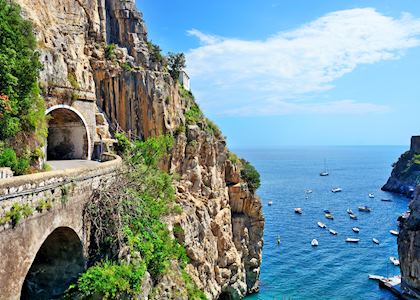
Visiting Europe in June
Clear blue skies and rising temperatures see the beach towns of southern Europe burst into action. It’s a good time to tour the Mediterranean or explore major cities without the summer crowds. In northern Europe, daylight stretches long into the evening, temperatures are pleasant and, ahead of schools breaking up, attractions are generally quieter.
Events & Festivals
- The Reykjavík Arts Festival takes place for three weeks each year in May or June. This is a major event in the capital that invites hundreds of artists from around the world to showcase their work.
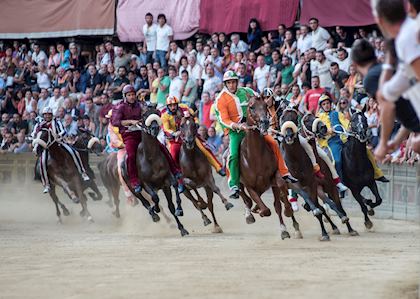
Visiting Europe in July
Higher temperatures, long hours of sunshine and the school summer break signal July as the start of Europe’s busiest travel season, with larger numbers of visitors across Europe. Many festivities and events take place, including concerts in historic buildings.
Events & Festivals
- The Palio, a historic horse race between the city’s contrade (districts), takes place in Siena on 2nd July.
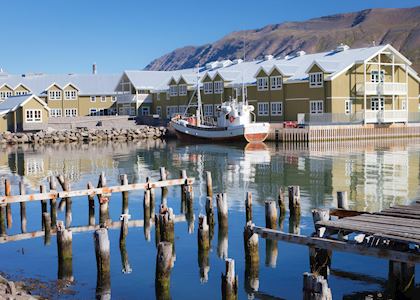
Visiting Europe in August
It’s holiday season in Europe, with many locals flocking to the beaches to escape the heat inland, particularly in the south. The Mediterranean beaches and cities can feel crowded.
Events & Festivals
- The Palio, a historic horse race between the city’s contrade (districts), takes place in Siena on 16th August.
- Menningarnótt (Culture Night) is celebrated in Reykjavík in August. This is a major event, with roads closing for street performers and fireworks in the evening.
- Fiskidagurinn Mikli (Great Fish Day) takes place on the first or second Saturday of August in the fishing village of Dalvík, in north Iceland. This is a big social event, with outdoor seafood buffets, and free fish soup offered in locals’ homes.
- Síldarævintýri (Herring Adventure Music Festival) is hosted in the town of Siglufjörður, in north Iceland, over the early August public holiday. In the past, the festival has featured a broad range of Icelandic music, from folk singing to Sigur Rós.
- The Palio, a historic horse race between the city’s contrade (districts), takes place in Siena on 2nd July.
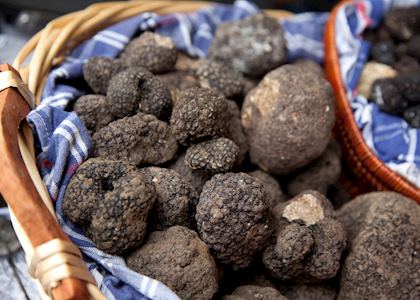
Visiting Europe in September
As schools reopen, temperatures decrease and the summer crowds dissipate, September proves a great time to visit Europe. The temperatures are still pleasant, the sea is at its warmest, and there are fewer people at major attractions and on the coast. It’s also harvest time, with food festivals and events celebrating the wine, cheese, truffles, oysters and olives of the region.
Events & Festivals
- The Regata Storica takes place in Venice on the first Sunday in September, with gondola races, gondoliers in traditional dress and waterborne pageantry.
- The grape harvest begins across southern Europe toward the end of September, and some wineries invite visitors to see the process take place.
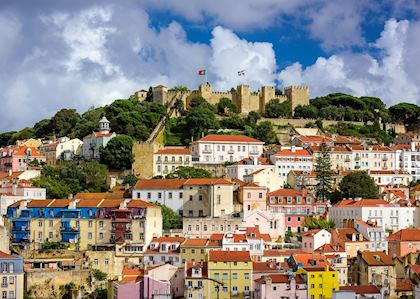
Visiting Europe in October
Cooler temperatures make October a good time to visit Europe’s cities and explore on foot. Seasonal foliage brings the countryside to life, and regional harvests and their associated festivals continue.
While the south is pleasantly warm by day, nights are cooler. By the end of the month, northern Europe is noticeably colder and wetter, but can still see periods of warm, settled weather. In Iceland, October is typically the wettest month, but there are noticeably fewer visitors compared to the summer months.
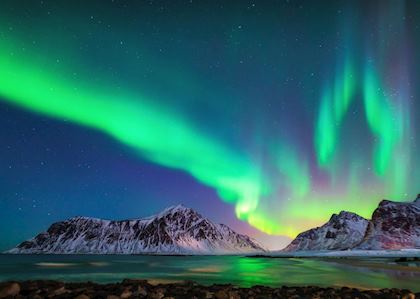
Visiting Europe in November
November is one of the quietest months of the year to travel to Europe. Many hotels and attractions close, and cooler temperatures lead to far fewer visitors on the streets. It’s also a time when you can benefit from better value on flights and hotel reservations. Major museums, galleries and historic sites are quieter, and you can photograph Europe’s landmarks at their most tranquil.
Events & Festivals
- In Iceland, chances of seeing the northern lights are best between November and February, when the sun sets before 6pm and the nights are longest.
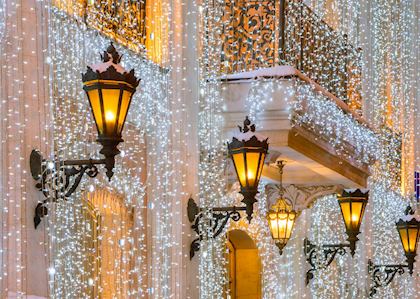
Visiting Europe in December
Christmas dominates the European cultural calendar in December, as festive markets and lights brighten up the cities. Although rural areas are much quieter, the countryside under a dusting of frost or snow can look magical in the north. New Year’s celebrations are another good reason to visit, when you’ll experience street parties and fireworks in most major cities.
Events & Festivals
- In the 13 days before Christmas in Iceland, troll-like Jólasveinar (‘Yule lads’) are said to visit children one-by-one in the days leading up to Christmas. Formerly, they tried to play tricks on people, but now they leave children small gifts. You might see the Jólasveinar projected onto buildings in Reykjavík, and they visit some hotels to leave small tokens for guests.
- New Year’s Eve is the biggest party of the year in Iceland, when bonfires and fireworks are lit, and Icelanders gather to share the warmth and sing. Belief in elves (huldufólk) is widespread in the country and they’re said to be most active at New Year, so it’s common for Icelanders to reference them in songs at this time of year.
- In Iceland, chances of seeing the northern lights are best between November and February, when the sun sets before 6pm and the nights are longest.
Our recommendations for when to visit Europe
- Best
- Good
- Okay
- Not recommended
- Winter season
| Destination | Jan | Feb | Mar | Apr | May | Jun | Jul | Aug | Sep | Oct | Nov | Dec |
|---|---|---|---|---|---|---|---|---|---|---|---|---|
| Italy climate guide |
A good time to travel, but there may be some factors to be aware of |
A good time to travel, but there may be some factors to be aware of |
A good time to travel, but there may be some factors to be aware of |
The best time to travel |
The best time to travel |
The best time to travel |
A good time to travel, but there may be some factors to be aware of |
A good time to travel, but there may be some factors to be aware of |
The best time to travel |
The best time to travel |
A good time to travel, but there may be some factors to be aware of |
A good time to travel, but there may be some factors to be aware of |
| Iceland climate guide |
A good time to travel, but there may be some factors to be aware of |
The best time to travel |
The best time to travel |
Travel is possible, but this is not the best time of year |
The best time to travel |
The best time to travel |
A good time to travel, but there may be some factors to be aware of |
A good time to travel, but there may be some factors to be aware of |
A good time to travel, but there may be some factors to be aware of |
The best time to travel |
The best time to travel |
A good time to travel, but there may be some factors to be aware of |
| Croatia climate guide |
A good time to travel, but there may be some factors to be aware of |
A good time to travel, but there may be some factors to be aware of |
A good time to travel, but there may be some factors to be aware of |
The best time to travel |
The best time to travel |
The best time to travel |
A good time to travel, but there may be some factors to be aware of |
A good time to travel, but there may be some factors to be aware of |
The best time to travel |
The best time to travel |
A good time to travel, but there may be some factors to be aware of |
A good time to travel, but there may be some factors to be aware of |
| Greece climate guide |
Travel is possible, but this is not the best time of year |
A good time to travel, but there may be some factors to be aware of |
A good time to travel, but there may be some factors to be aware of |
The best time to travel |
The best time to travel |
The best time to travel |
A good time to travel, but there may be some factors to be aware of |
A good time to travel, but there may be some factors to be aware of |
The best time to travel |
The best time to travel |
Travel is possible, but this is not the best time of year |
Travel is possible, but this is not the best time of year |
| Cyprus climate guide |
A good time to travel, but there may be some factors to be aware of |
A good time to travel, but there may be some factors to be aware of |
The best time to travel |
The best time to travel |
The best time to travel |
The best time to travel |
A good time to travel, but there may be some factors to be aware of |
A good time to travel, but there may be some factors to be aware of |
The best time to travel |
The best time to travel |
The best time to travel |
A good time to travel, but there may be some factors to be aware of |
| Portugal climate guide |
A good time to travel, but there may be some factors to be aware of |
A good time to travel, but there may be some factors to be aware of |
The best time to travel |
The best time to travel |
The best time to travel |
The best time to travel |
A good time to travel, but there may be some factors to be aware of |
A good time to travel, but there may be some factors to be aware of |
The best time to travel |
The best time to travel |
A good time to travel, but there may be some factors to be aware of |
A good time to travel, but there may be some factors to be aware of |
| Turkey climate guide |
Travel is possible, but this is not the best time of year |
Travel is possible, but this is not the best time of year |
A good time to travel, but there may be some factors to be aware of |
The best time to travel |
The best time to travel |
The best time to travel |
A good time to travel, but there may be some factors to be aware of |
A good time to travel, but there may be some factors to be aware of |
The best time to travel |
The best time to travel |
A good time to travel, but there may be some factors to be aware of |
A good time to travel, but there may be some factors to be aware of |
| Spain climate guide |
A good time to travel, but there may be some factors to be aware of |
A good time to travel, but there may be some factors to be aware of |
The best time to travel |
The best time to travel |
The best time to travel |
The best time to travel |
A good time to travel, but there may be some factors to be aware of |
A good time to travel, but there may be some factors to be aware of |
The best time to travel |
The best time to travel |
A good time to travel, but there may be some factors to be aware of |
A good time to travel, but there may be some factors to be aware of |
| Norway climate guide |
A good time to travel, but there may be some factors to be aware of |
A good time to travel, but there may be some factors to be aware of |
A good time to travel, but there may be some factors to be aware of |
The best time to travel |
The best time to travel |
The best time to travel |
The best time to travel |
The best time to travel |
The best time to travel |
The best time to travel |
A good time to travel, but there may be some factors to be aware of |
A good time to travel, but there may be some factors to be aware of |
Europe trip ideas and travel guides
-
![Giralda tower, Seville]()
-
![Bairro Alto, Lisbon]()
-
Where you can enjoy the outdoors in Europe ![Train to the Mer de Glace, Chamonix]()
Where you can enjoy the outdoors in Europe
Where you can enjoy the outdoors in Europe
Read this guide -
Best of Spain and Portugal ![Plaza de Cibeles, Madrid]()
Best of Spain and Portugal
Best of Spain and Portugal
Read this guide
